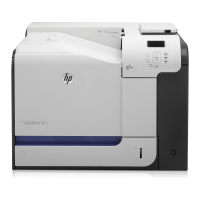FUP Commands
File Utility Program (FUP) Reference Manual—523323-014
2-163
REVOKE (Super ID)
REVOKE (Super ID)
Revokes a license for a privileged program file, or resets the security attributes of files
and programs that have standard security codes.
REVOKE command privileges are determined by your user ID:
If your user ID identifies you as the owner of a file, you can reset the
CLEARONPURGE and PROGID security attributes of the file by including the file
in fileset-list and specifying the attribute you want to reset.
The super ID (255, 255) can revoke the license for a privileged program file named
in fileset-list by omitting secure-option from the command.
fileset-list
is a list of files whose licenses or other attributes are to be revoked. Partial file
names are expanded using the current default node, volume, and subvolume (if
necessary). You can use wild-card characters and specify qualified-fileset
for fileset-list.
secure-option
is one of three options that can be set by a program or by a SECURE command.
For more information, see SECURE
on page 2-166.
CLEARONPURGE
physically deletes all data within fileset-list from the disk (by overwriting
the file space with blank data) when the file is purged.
Including CLEARONPURGE in a REVOKE command revokes the
CLEARONPURGE option for the file. When you purge a file that does not have
CLEARONPURGE set, the disk space is logically deallocated. This option has
no effect on a PURGEDATA operation.
PARTONLY
specifies that only the designated partition is affected by this REVOKE
command (for partitioned files). If you omit PARTONLY, every partition is
affected. If PARTONLY is the only secure-option in a REVOKE command,
the license for that partition is revoked.
REVOKE fileset-list [ , secure-option ] ...
secure-option is:
CLEARONPURGE
PARTONLY
PROGID

